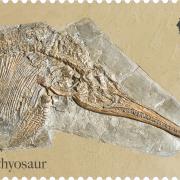Cardiology Consultant, Dr Talwar and Cardiac Services Manager, Norma Cox, explain how new cutting edge technology can now combat the debilitating effects of heart disease
For centuries, the heart has been linked to romance. From love’s laborious lamentations to fiery acts of powerful passion, the heart remains perhaps the most important organ of them all. As Oscar Wilde once said: “The heart was made to be broken”, so what can be done when it starts to go wrong?
At the new Cardiac Catheterisation lab at Nuffield Health Bournemouth, we perform diagnostic coronary angiograms to look at the heart, identify any narrowing or blockages in the coronary arteries, and often we can treat them straight away with stents.
The blood flow to the heart can be reduced by the build up of fatty deposits inside an artery that cause the artery to narrow. Patients with narrowing or blockages in the arteries supplying the heart, very often present with angina, which manifests as a chest tightness on exertion or increasing breathlessness on exercise.
Cardiovascular disease is the leading cause of death globally and the more risk factors you have, the greater your chance of developing heart disease. Important risk factors for heart disease are smoking, high blood pressure, high cholesterol, diabetes, being overweight, being physically inactive, having an unhealthy diet or having a family history of early heart disease.
In many cases, angiograms can quickly diagnose the problem, whilst a procedure called angioplasty with stenting can treat the narrowing of arteries supplying the heart. After surgery, patients very often will feel the benefits immediately. Many patients will then be entered into a cardiac rehabilitation plan to help them get back to being fighting fit.
The Cardiac Catheterisation lab is a huge investment – there is no other private cardiac lab in Dorset. We recommend that those who wish to be treated within the new cardiac lab seek a referral from their GP. In the first instance we may run a few tests such as an echocardiogram (ECG), or a treadmill test to see how your heart performs under exercise. This may determine whether you need a diagnostic angiogram. After your consultant has identified an issue, the angiogram would highlight if you either need an angioplasty with stent or another treatment.
In some cases heart conditions are hereditary, but following a healthy diet and keeping your weight down are all important factors to good heart health. However, not smoking has to be top of the list. Keeping active is also very important. The key is to look after yourself, which in turn heals your heart.
READ ON
• Consultant Endocrinologist Dr Richardson on how to manage diabetes - With 3.9 million people living with diabetes in the UK, Consultant Endocrinologist, Dr Richardson explores how to manage this metabolic disorder which affects blood sugar level



























